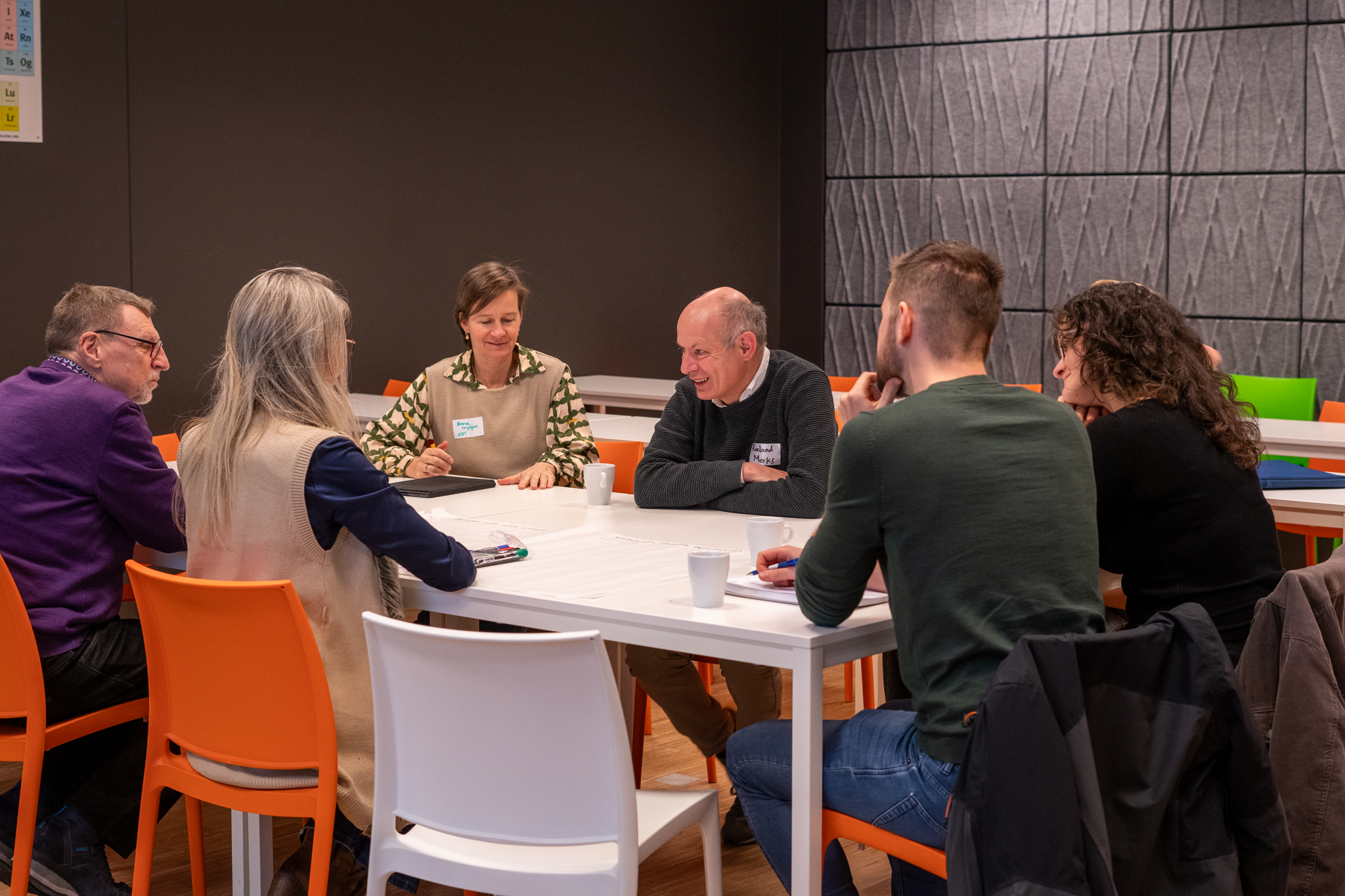
AI in Research and Education: Inspiration and collaboration at the eScience Event
How can you use AI in your research? And how can we implement new digital technologies within our faculty, with support from the experts we already have in-house? These were the central questions explored on the afternoon of Tuesday, 10 December, during the eScience event. Here are the key takeaways.
Joost Batenburg kicked off the afternoon dedicated to eScience—a session focused on research using digital technologies such as AI. As a professor of Computer Science, his research focuses on AI, particularly in the field of Imaging. Joost is also the programme director of the interdisciplinary research initiative Society, Artificial Intelligence and Life Sciences (SAILS), which works on AI across the university. Today, he aimed to connect researchers from our faculty. ‘It’s important for colleagues to find their way in the world of AI, even those who aren’t trained in it,’ he emphasised.
Supporting researchers in AI
Pieter Schipper, who co-organised the afternoon, echoed this sentiment. As Head of Academic Affairs, he views eScience as a crucial topic. ‘We recognise that AI will become increasingly important, and we want to support our researchers in this area.’
After short presentations by four experts—Joost, alongside Roeland Merks, Thomas Bäck, and Gerard van Westen—the attendees split into groups at four tables, each led by one of the experts.
High interest in applying AI to research
What were the main topics of discussion? Most attendees were eager to explore the possibilities AI could bring to their respective fields. There was also a strong desire to integrate AI into teaching, equipping students and PhD candidates with knowledge about its potential and risks. Participants expressed the need for clear university-wide policies on AI and discussed ideas for collaborative funding applications.
The risks of AI
Concerns were also raised. What does it mean to be a student or PhD candidate in this rapidly changing world? How can scientists conduct ethical research using AI? Maintaining control over data is a priority, especially for academics. Additionally, the environmental impact of AI was highlighted as a pressing issue. How should we address this?
This event was a solid starting point. The need for information and knowledge-sharing among researchers from different institutes is evident, as confirmed by the participants. Keep an eye on the faculty agenda and newsletter for follow-up events.
-
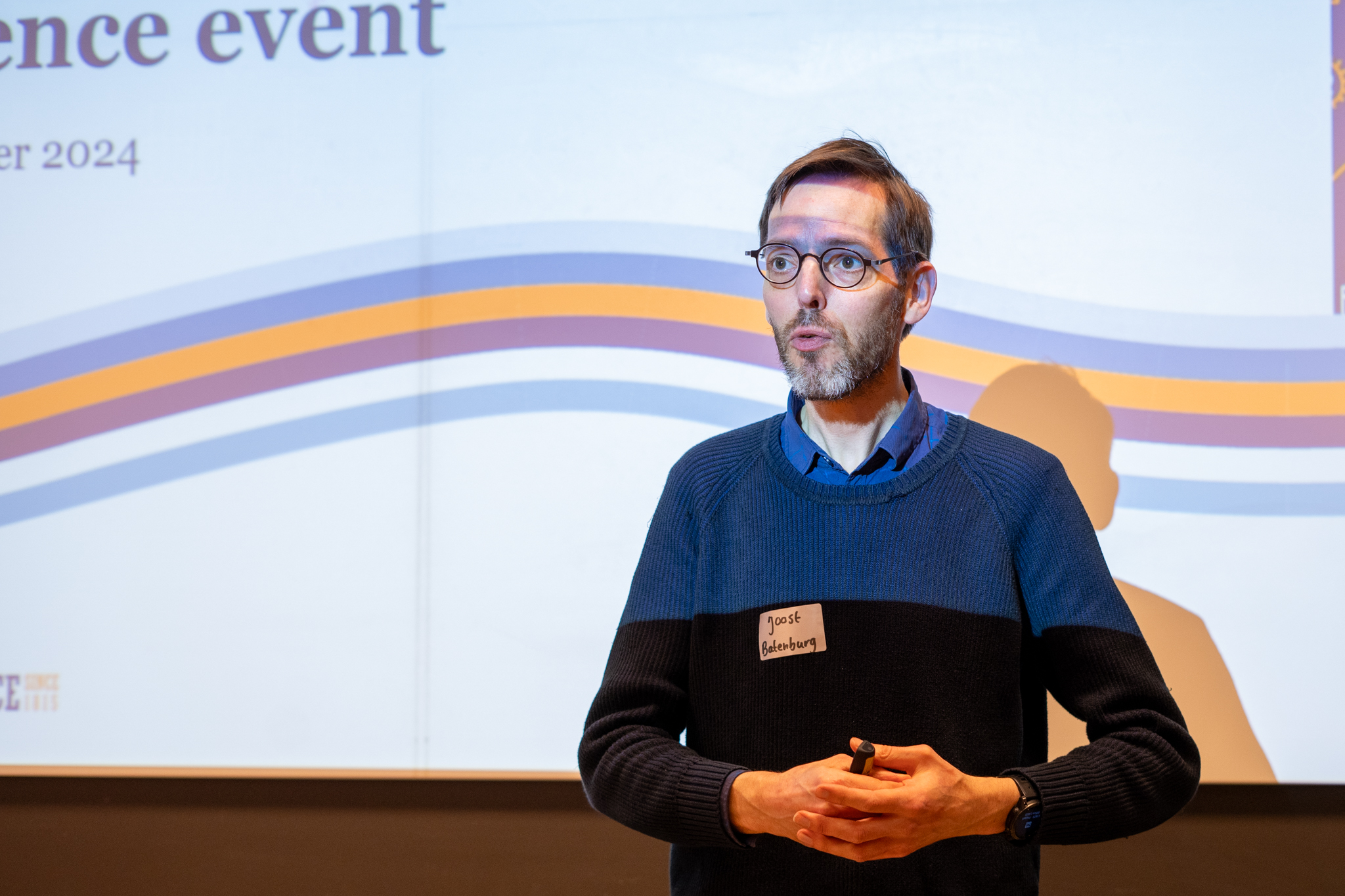
Joost Batenburg -
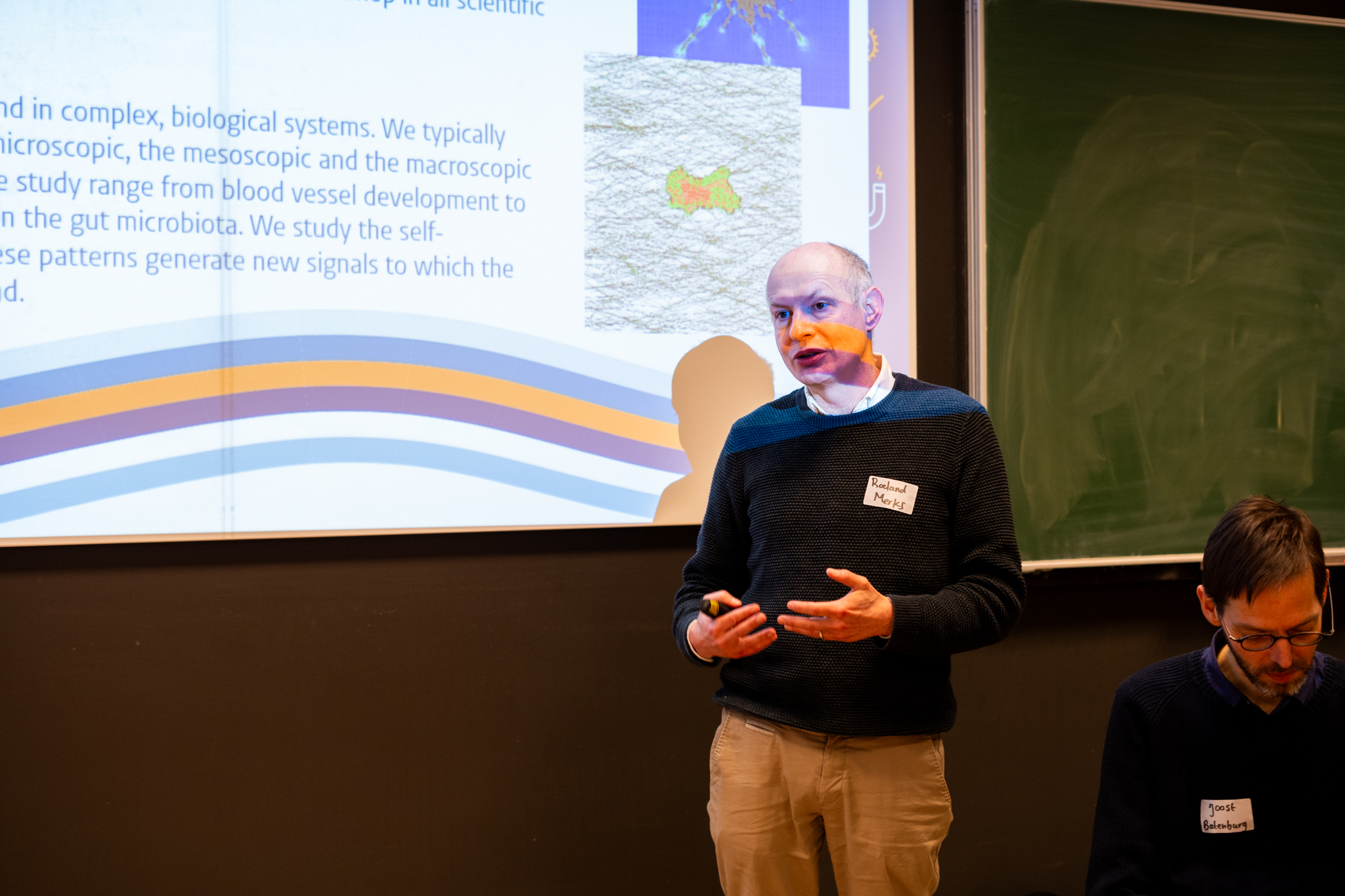
Roeland Merks -
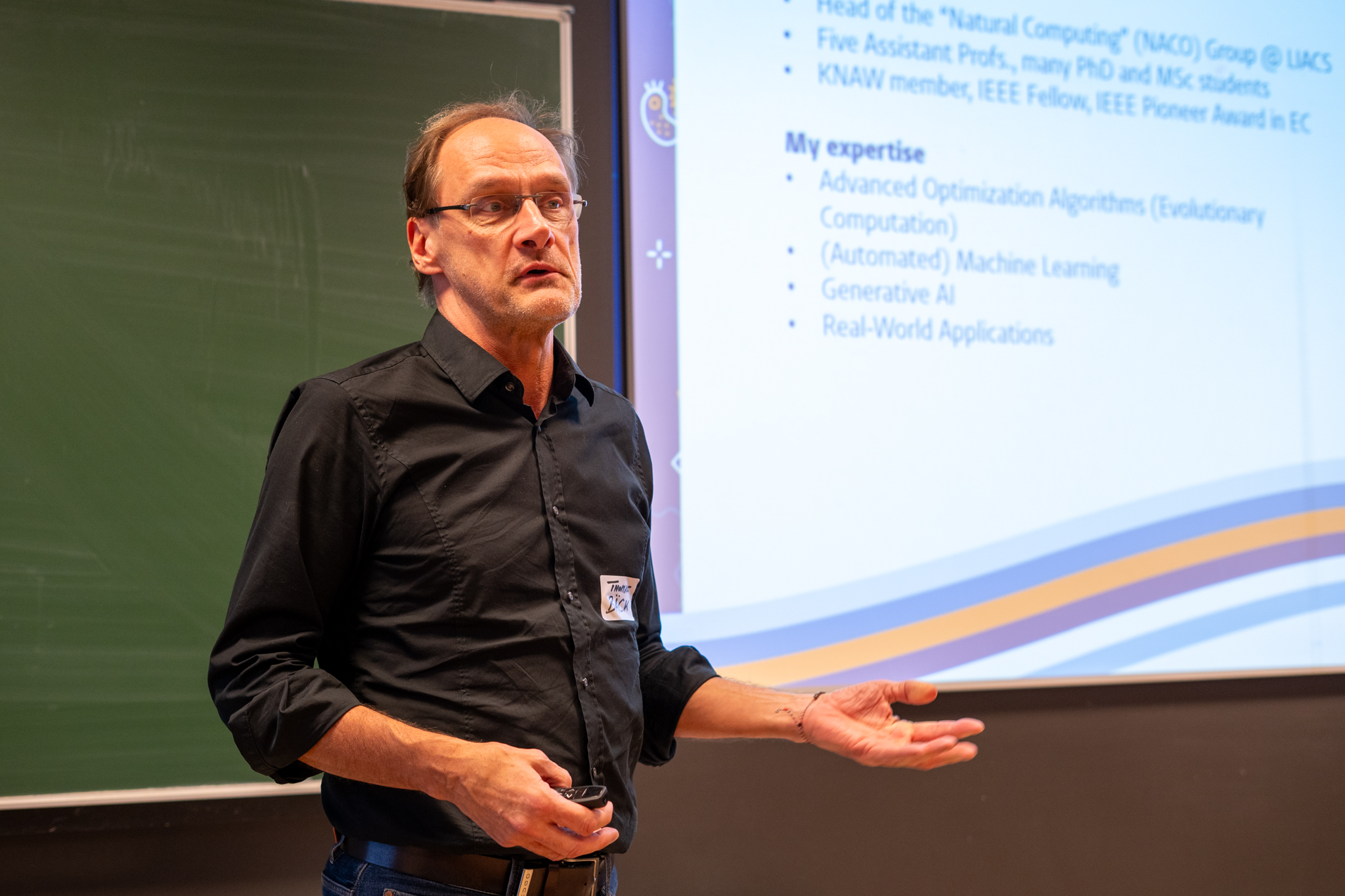
Thomas Bäck -
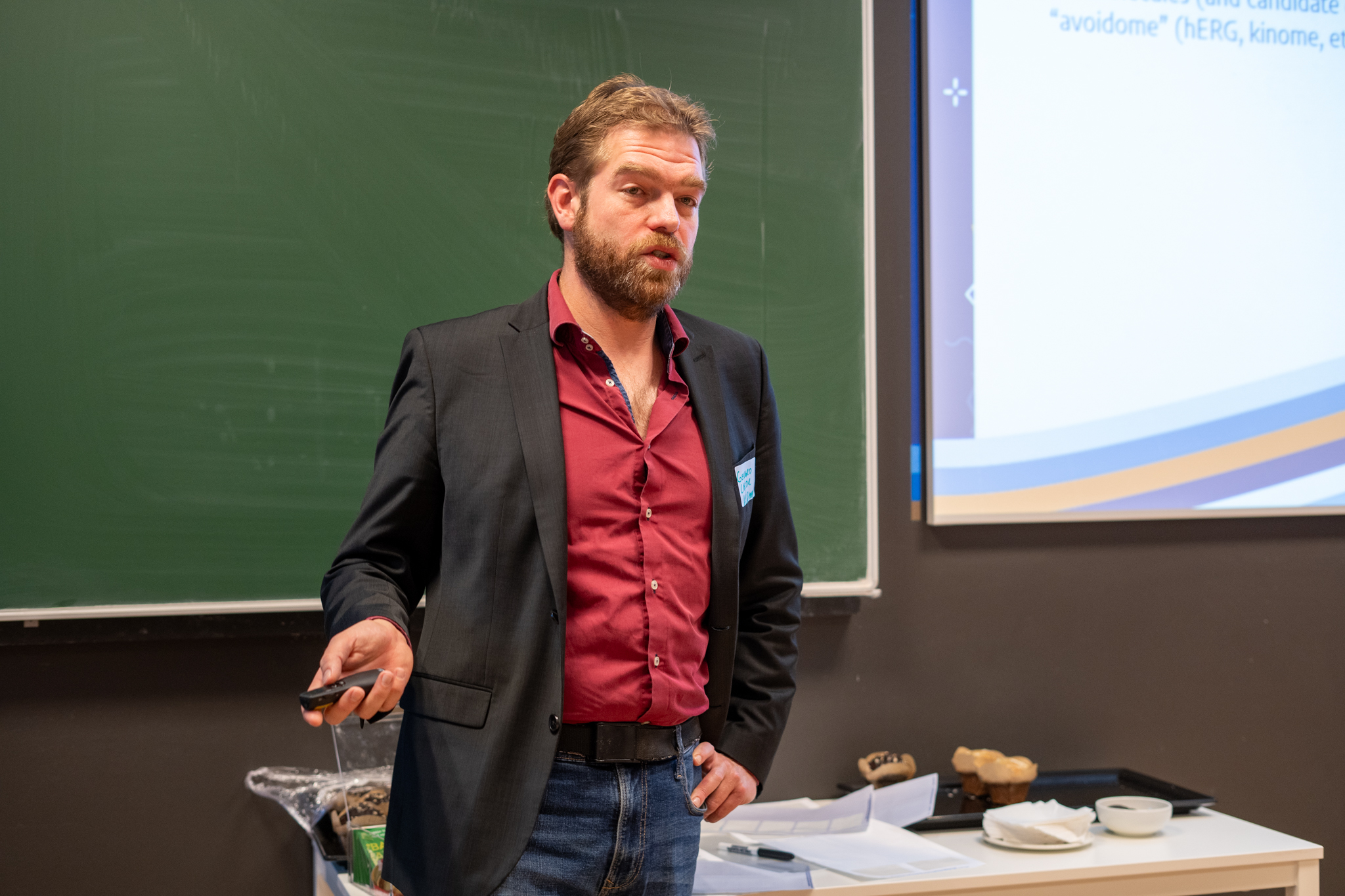
Gerard van Westen -
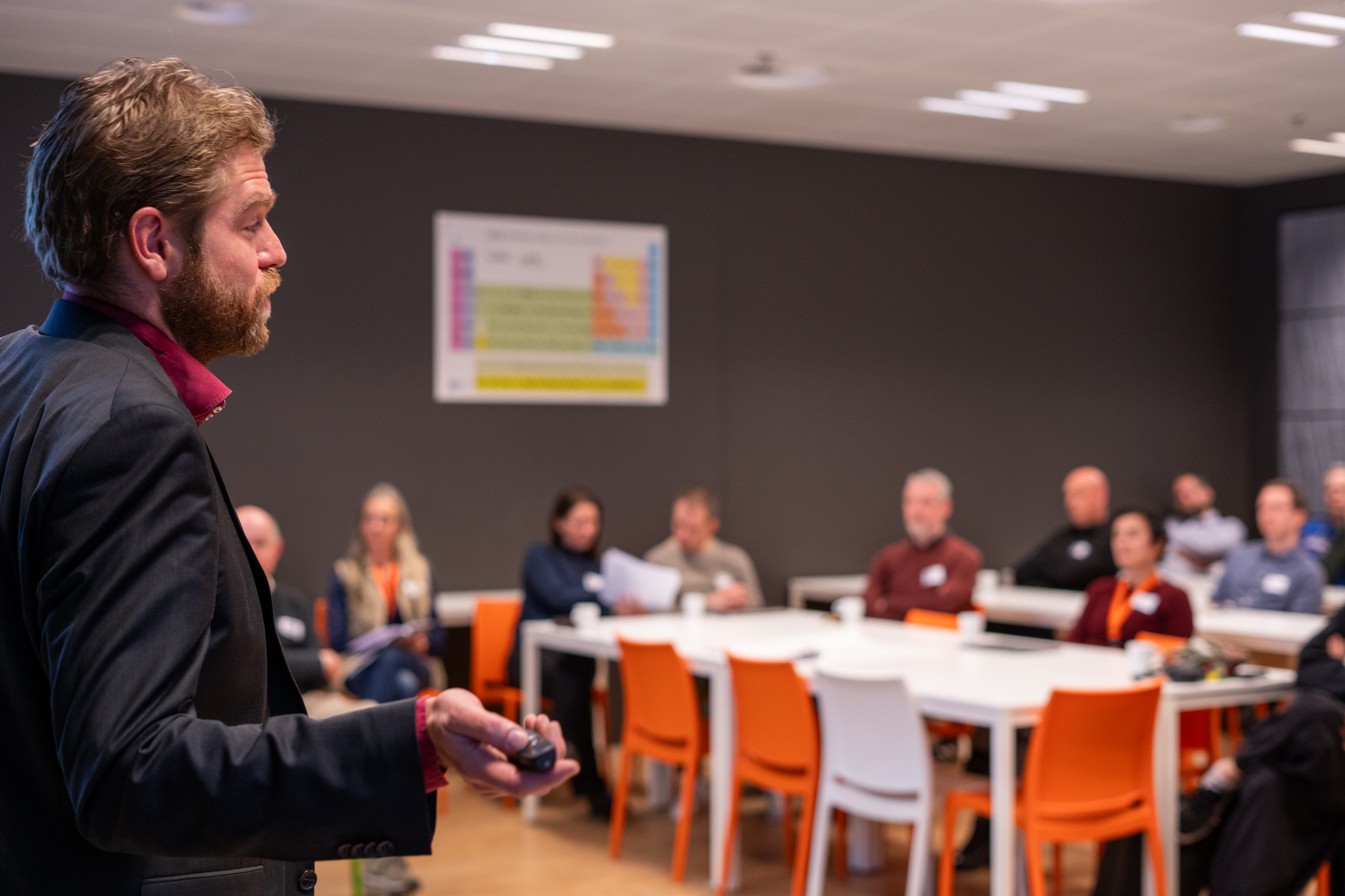
-
